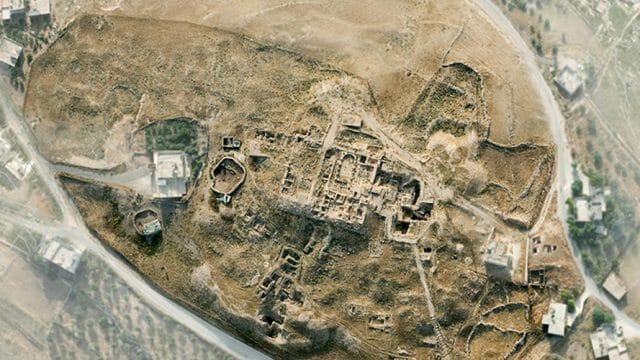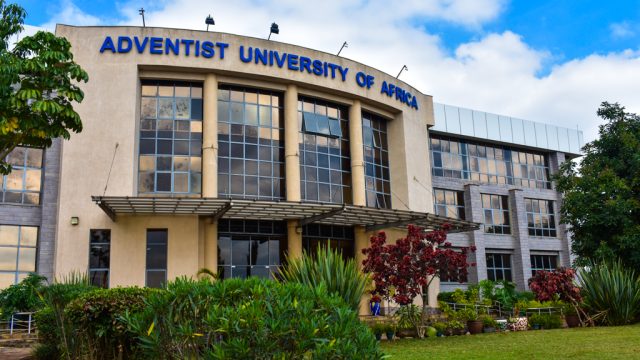Facilities seek to foster extensive community and media outreach, church leaders said.

The Potomac Conference of the Seventh-day Adventist Church unveiled its new northern office building in Camp Springs, Maryland, United States, on May 11, on a campus that sits on a hill. The ribbon-cutting event marked a significant milestone for the organization, especially for employees who have long awaited a local administrative hub.
The new office is located just outside Washington, D.C., a three-hour drive northwest of the main Potomac Conference office in Staunton, Virginia (pronounced “Stanton”).
The opening ceremony, imbued with a sense of community and spiritual fervor, introduced a sprawling three-building campus designed to cater not only to administrative needs but also to foster extensive community and media outreach, regional church leaders said.
The newly inaugurated complex includes an office building equipped with state-of-the-art suites and a conference room, creating a professional environment conducive to the organization’s administrative operations. Adjacent to the office building is an annex that houses a fellowship hall and kitchen, alongside a cutting-edge media center with a dedicated media office. This setup is poised to become a nucleus of creativity and learning, leaders said.
Perhaps the most significant addition to the campus is the chapel, named the House of Prayer. With a capacity of 200, this sacred space is now the home for worship services conducted by the Community of Hope church under the leadership of Paul Graham. This chapel is envisioned as a spiritual sanctuary and a versatile venue to serve the broader community, according to conference leaders.
Potomac Conference president Charles A. Tapp articulated the dual purpose of this expansive facility during his address.

“This facility will serve as an administrative outpost but, more importantly, it is a ministry center uniquely positioned to uplift through education and spirituality, housing the Hispanic School of Theology and various administrative offices.” Reflecting the organization’s commitment to spreading the gospel message far and wide, Tapp emphasized, “We’re excited that the facility boasts a state-of-the-art media center aimed at producing content that glorifies the teachings of Jesus Christ. Our goal is to create content that lifts up the name of Jesus.”
Richard Castillo, the Potomac Conference media director who designed the studio, shared his concept for the media center, focusing on its potential as a training ground for budding producers and directors. “Our vision is to make this studio available for training conference-certified producers and directors, allowing their churches and organizations to produce as much content as the schedule allows,” Castillo explained. The design of the media center is intentionally flexible, enabling content creators to explore their creativity without constraints.
The establishment of this new complex in Camp Springs is a testament to the Potomac Conference’s dedication to serving its community through innovative spaces that blend administrative efficiency with spiritual and creative enrichment, leaders said. It stands not only as a center of administrative operations but also as a beacon of hope and a source of inspiration for the community it serves. This strategic expansion highlights the organization’s forward-thinking approach to “Move Beyond the Walls” in ministry and community service.
The original version of this story was posted by the Columbia Union Visitor.








